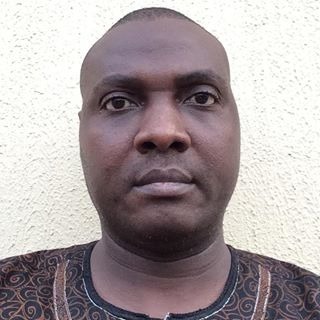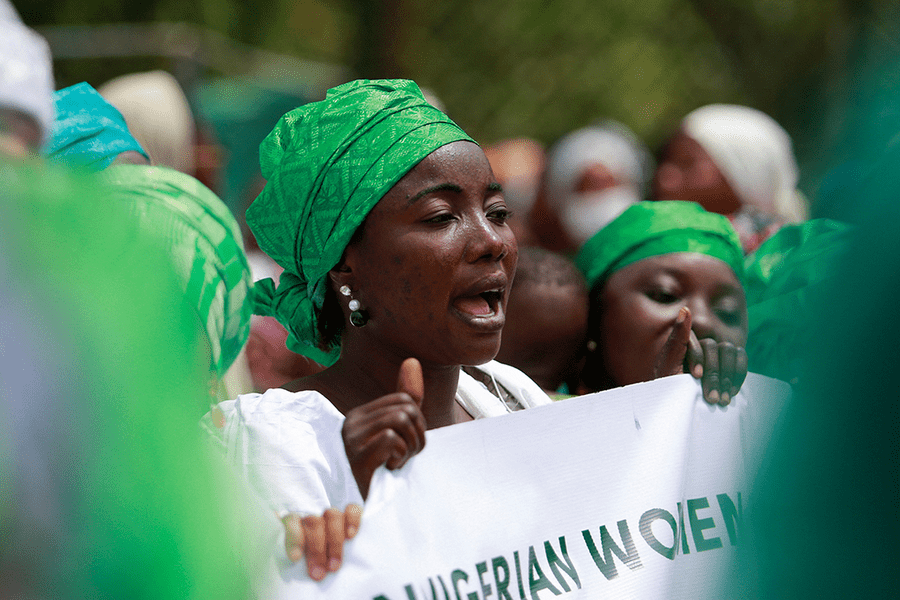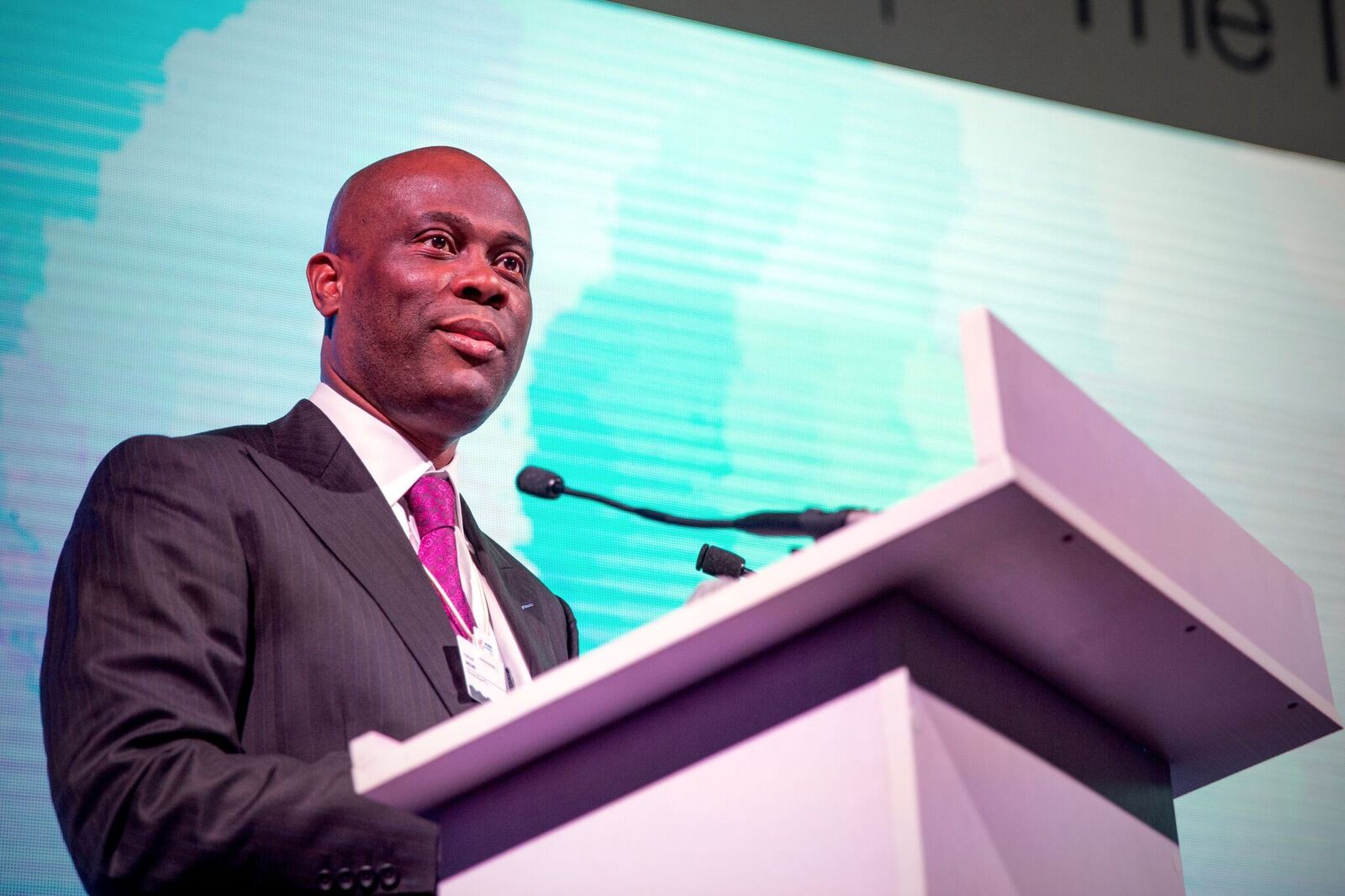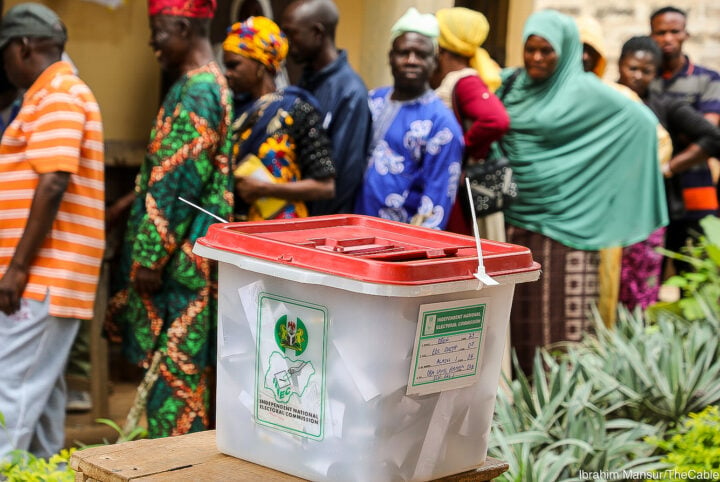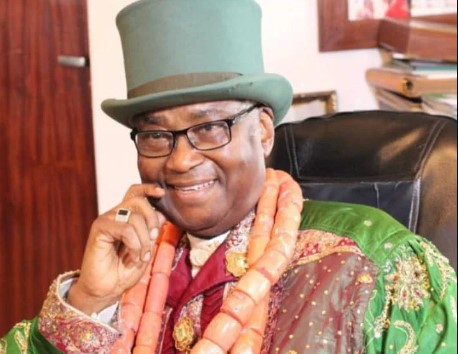What can woman really do to reform Nigeria? If availed the reins of governance in the country, what would they do differently at the various levels and tiers of government that will add value to our society, and promote the attainment of the public good in a fundamental sense?
Yet, another way of considering the foregoing and the raft of cognate questions they inspire is through the following appraisal: What do women represent as essential stakeholders in the Nigerian society? And, in extending the correlative logic of the aforesaid: What have they been doing so far? Or, what have they not been able to do, and why have these been so?
If women constitute about 50% of the Nigerian population and are claimed to be 75% of voters at elections, then it becomes crucial to reconsider why the interests of women barely come through in the design of public policy, or why they are hardly present within the structures of decision-making, where difference can be made.
Some of the concerns expressed above – and which possibly indicate why Nigeria has come to its present sorry pass, in which the state has become all but dysfunctional, evincing considerable manifestations of poor management, and punching way below its weight, with disheartening outcomes for the populace – is what motivated the Akin Fadeyi Foundation (AFF) to host a recent conversation in July around the situation of women in the Nigerian public space.
Advertisement
More so, this is within the frame of how Nigeria women could be that missing reformist link to good governance in the country, particularly as the predominantly patriarchal orientation of public sector actors has consistently failed, and is in dire need of reinvention if Nigerian is going to break out of its current social conundrums.
It is about cutting the ground differently and reconstituting the template for another dimension of engagement. Through this newer conversation around and programme hinged on what women can do, Akin Fadeyi Foundation seeks to build a mass of critical female perspectives on governance, what the female folk would do in running the country differently and better, as a way of unlocking real, sustainable change, through a gendered re-thinking and re-making of the Nigerian reality.
If a male driven ontology has bequeathed to us social and political violence, climate change, wars, upheaval and instability, etc., it is definitely crunch time enough for Nigeria to consider flipping the coin, and contemplating a collaborative or even female-led direction into the future. This is the context that energises AFF to canvass Nigerian women to make video pitches of what they will do if, and when, in public office, that would make a difference to governance, as a competition that would be ranked and awarded prizes.
Advertisement
The very crucial of notion of what women can do towards the end of the public good, if they take charge of processes and structures of decision-making, is as timely as it is vital, and the entourage of noteworthy speakers assembled by AFF – from Dr Amina Salihu of MacArthur Foundation, which supported the event, to Mrs Bamidele Ademola-Olateju, the Ondo State Commissioner for Information, and Mr Simon Kolawole, who chairs the Board of AFF, among others – plumbed the interstices and depths of the issues involved. They probed the frameworks of this question, inverted its premises and interrogated its assumptions, while offering insights on the necessary obligation of dismantling the boundaries erected by patriarchy to restrain women from engaging in public decision-making processes.
In Ms Salihu’s incisive reformulation of the operative question, it is not so much of about what women can do, but how much of how what they have been doing can be supported and mainstreamed for greater outcomes. It is about deepening the various levels of organising done by women in upturning the patriarchal ordering of society, and this would involve acknowledging their incremental wins, even if these have not yet gotten them to the Promised Land, and enhancing their capacities to gain economic power, which is the springboard for attaining political power.
Representation and the Politics of Power
In as much as a significant plank of the conversation in Nigeria is about creating newer strategies for gender inclusion within structures of governance and decision-making, this could equally be regarded as unfortunate in a world in which many are already attaining gender parity and equity in political and social representation, with evenly split public offices between men and women. This formed an entry point of Mr Simon Kolawole, who is also the Publisher of The Cable newspaper, into the discourse. For him, why has the gender gap continued to widen in Nigeria, and women dropping out, in terms of political participation? That there has been a significant reduction in the number of women in public office in Nigeria in more recent times is without doubt.
Advertisement
The representation of women and their participation in governance in Nigeria, whether on the level of elective or appointive positions have been nothing short of appalling, since the earliest period of nationhood. While 1922 marked the commencement of electoral politics for men in the country at the national level, women were only able to come into the same space in 1951, although some of them had participated at the local level (such as Funmilayo Kuti who won an election into the Egba Council) in Abeokuta in 1949, and in Lagos in 1950.
This tokenism gained a bit of expression in January 1953, with the election of Remilekun Aiyedun into the regional legislature, and in 1961 with the winning of seats by Margaret Ekpo and Janet Mokelu in the Aba Urban District and the Enugu East constituencies, respectively. Equally, a sprinkling of others like Hajiya Gambo Sawaba in Zaria, Hajiya Laila Dogonyaro in Tudun Wada, Kaduna, and Hajiya Murjanatu in Dutsinma were successful in local council elections.
Women were largely missing in major general elections in Nigeria, such as in 1979 when only three women won seats into the 450-member House of Representatives, with no woman getting into the Senate in that era. The pattern was fairly similar in 1983, with three women making it into the House of Representatives again, whilst one woman managed to become a Senator. During the National Assembly of 1991/92, out of a 589-member House of Representatives, 13 of them were women, while there were eight female senators.
In the ongoing Fourth Republic of democratic rule in Nigeria, beginning from May 1999, the gender gap in governance in the country has been particularly unfortunate, with the participation of women in all elective offices – from the national to sub-national parliaments and state executives – hovering between an abysmal 3% and 9%. The Republic’s first electoral cycle in 1999 witnessed three women in the Senate and 12 in the House of Representatives, alongside the election of one female deputy governor and 22 members of state parliaments. This constituted a 3% representation.
Advertisement
While three women were elected into the Senate, 21 into the House of Representatives, two as deputy governors and 30 into state parliaments in 2003, making for 4% of women in all, in 2007 there were nine female senators, 25 federal Representatives, six deputy governors and 30 members of state houses of assembly, making for a total female representation of 9%.
In 2011, the Senate had seven females; House of Representatives, 24 women; three female deputy governors and 45 state parliamentarians that were women, making a 7% representation, while 2015 witnessed eight women senators, 23 female House of Representative members, four women deputy governors, and 37 female state assembly members, all adding up as 7% of representation. Presently, in the uncompleted 2019 electoral cycle, we have eight women in the Senate, 13 in the House of Representatives, two female deputy governors, and 30 women in the state parliaments.
Advertisement
The huge gender gap in the participation of women in public office and in Nigeria, at an average of 6.7% across elective and appointive posts, is quite disconcerting, if not outright shameful, and occurs far below a West African average of 15%, an African average of 23.4%, and the global average of 22.5%. It has, more so, been pointed out that of the 193 countries ranked in the Gender Equality Index in 2020, Nigeria occupies the 181st position, which is highly unfortunate.
Accentuating the foregoing view is the fact that although a bit of progress was recorded in the appointment of women by earlier administrations, particularly into the federal executive, and a policy of affirmative action, allotting at least 35% of cabinet positions to women, had been officially adopted, the current government of President Buhari has violated these sorely. Of about 43 ministerial positions, only seven women were appointed, representing a measly 16%. And, in emphasising this disregard for gender affirmation, when eight cabinet members who had resigned were being replaced recently, none of the newer appointees was a woman.
Advertisement
It was this continued disdain for female representation in national decision-making that made a coalition of women’s groups sue the Buhari administration for its failure to honour the affirmative action policy in its cabinet appointments. While the alliance won this case in court, revealing the gender insensitivity of the government, loud speculations that the judicial decision would be appealed by the administration is unquestionably regrettable.
The dominant patriarchal outlook in the governance space appears to pander to the illogic of a federal parliamentarian, Senator Kazaure, who had stated that since women already dominate men in the home front, they should not be allowed to consolidate on this by dominating them in the public sphere also! Hence the need to keep women’s participation in governance as limited as possible. This was given expression to earlier in the year by lawmakers, who overwhelmingly voted against five gender empowering bills in the National Assembly.
Advertisement
Rebuilding the Power Pyramid for Inclusiveness
With the necessity of women having their voices at the decision-making table, coming on the back of necessary economic empowerment, the Executive Director of AFF, Mr Akin Fadeyi more so pointed out – during the conversation on July 19 – that while Nigerian women were not alien to leadership and being key actors in the public space from the earlier periods of figures like Queen Amina of Zaria, etc., yet it has become of major concern that there has been a steady decline of female participation in governance since 1999.
Still, there is the abiding obligation to challenge the patriarchal dominance of political bodies, and pull down all obstacles erected against women, while enabling organised structures to push the agenda of women, as observed by Mrs Bamidele Ademola-Olateju in the panel on “What Women Can Do”. For her, women are essential mobilisers for political activity in the country and as such would need to also support each other in attaining public office, in the way they rally to vote men into power. Moreover, as much as the political empowerment of women would largely be achieved incrementally, yet like men do, she was of the opinion that the female folk will also need to learn how to build power pyramids from the bottom to the top.
In order to achieve more gender inclusiveness in the political space, there has to be an intentionality of raising and nurturing a generation of women leaders, through capacity-building and mentorship systems for women, alongside deliberate policy interventions. Whilst making these points during the panel discussions, Dr Lilian Anomnachi, the Executive Director of Technical Advice Connect equally pointed out how such an intentionality of purpose has reached fruition in countries like Senegal, and Rwanda, which has attained gender parity in representation in federal cabinet and national parliament.
For the majority of women in society, gender politics is a life-cycle which starts from being born female and is entrenched through the acts of socialisation, and for MacArthur Foundation’s Amina Salihu, there has to be a conscious effort at breaking the ossifying construct around gender roles in society. And, to gain greater political access for women, as mentioned earlier, this would require their economic empowerment in order to change outcomes sustainably. Salihu outlined how despite 80% of MSMEs in the country being run by women, yet only 4% of these get any form of support. Hence, while there are already too many women at the base of the pyramid of unemployment, without real economic power, women will never get appointed into boards and be part of decision-making. To her, being about 75% of voters, women have a very strong social capital that needs to be converted into political capital that enables other women to get into positions of leadership and political power.
Central to the lack of gender inclusive governance in Nigeria is the phenomenon of power asymmetry, as informed by an essential patriarchal orientation. The media has equally been complicit in this regard, in terms of the kind of stories being written, and their perspectives, as put by Dr Chido Onumah, the Coordinator of the African Centre for Media & Information Literacy (AFRICMIL) in one of the panels. As illustration, he calls up the terrible reporting done by one of Nigeria’s prominent newspapers on the actress and deputy governorship candidate in Lagos, Funke Akindele, who was asked to go and fix some aspects of her personally life before thinking of coming to fix the state!
Canada offers one of the most progressive stories of gender representation in public affairs, with the cabinet of Prime Minister Justin Trudeau having a 50% representation of women, who equally hold powerful portfolios as the Deputy Prime Minister, and the Ministers of Finance, Defence, and Foreign Affairs. This was the comparative and aspirational experience for Nigeria brought to the panel by Tracy Docheff, the Director for Marketing and Communications at Toronto New Life Wellness Place, who has been engaged in advocacy for women through sports.
The irony of the private sector being in the leadership of affirmative action processes and principles, as against the public sector, which ordinarily ought to set the template for governance across social institutions and structures, was alluded to in the panel presentation of Adekunle Shotubo, an expert in the energy industry. As he elucidated upon, it has been discovered that companies with women in top management positions have better returns on investment, and overall better operating results, and he wished that many of the lessons from industry on how diversity enhances outcomes would be taken up in politics and governance.
He spoke about the intentionality of the industry in reserving at least 25% of top management and board positions for women, in addition to getting more of them involved in STEM (Science, Technology, Engineering and Mathematics), with this leading to the qualification of more women engineers. More so, there has been the promotion of inclusive work places by ending unfair practices that affect female workers more, creating performance targets that enable parity, the granting of paternity leave so that women can resume work earlier, in addition to the discouragement of harassment in the workplace.
One crucial step towards the attainment of greater gender inclusiveness in the public space and governance in Nigeria, as mentioned by Simon Kolawole and affirmed by Hajiya Saudatu Mahdi of the Women’s Rights Advancement & Protection Alternative (WRAPA) is through deliberate policy targeting and the design of pertinent legislation. Such targeting has borne lauded results in places like Rwanda and Senegal that have been referred to above. Further to this, Mahdi spoke about the need for constitutional review to legally affirm roles and slots for women, while they equally need to change strategy for better political engagement and taking on more radical actions to achieve the goal of more inclusive female representation in governance.
What can women do? Without doubt, they have definitely been doing a lot – as pointed out by speakers in the panel discussions – and are capable of much more in salvaging and pulling Nigeria back from the tipping point to catastrophe that it is presently plodding towards. The highly innovative factor that the Akin Fadeyi Foundation has brought to bear on this is in taking a proactive lead by offering a platform for the voices and ideas of women to be heard, on how they would remake Nigeria when they come into opportunities for this in positions of leadership. More than mere affirmation, this bold initiative of AFF not only advances the enlightened course of balance and healing in the Nigerian society, but also indicates – very importantly – how truly female the future could be.
Bamidele is the Secretary of the Editorial Board of PREMIUM TIMES.
Views expressed by contributors are strictly personal and not of TheCable.
Add a comment
